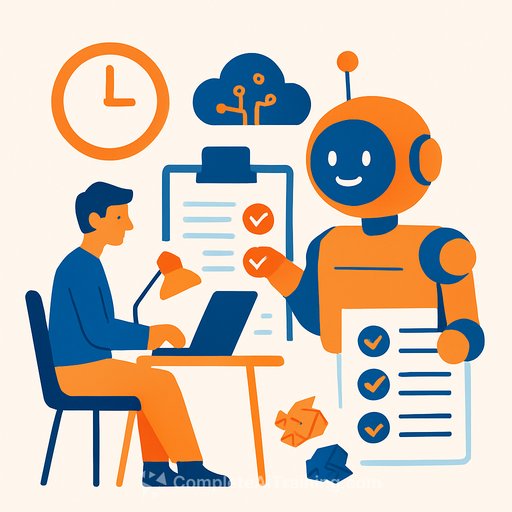AI Isn’t Here to Take Our Jobs — It’s Here to Free Us from the Boring Parts
The World Economic Forum estimates that artificial intelligence will create 170 million new jobs in the next five years. Yet, many people worry about machines replacing human roles. Why is that?
While AI is expected to displace around 92 million jobs, the net gain still points to 78 million new opportunities. These numbers show that AI’s impact on jobs is less alarming than the headlines suggest.
AI Can’t Replace What Makes Us Human
AI lacks empathy, critical thinking, and social skills — the qualities central to many jobs involving human interaction. Roles in customer service, education, leadership, and psychology all need a human touch. AI struggles with complex decisions, especially when ethics or social nuance come into play.
Take autonomous cars, for example. They face huge challenges making ethical decisions in emergencies, which is why projects like the “Moral Machine” exist to teach AI ethical reasoning. If AI can’t handle these decisions on the road, it’s even less capable of handling sensitive decisions involving people at work.
AI Isn’t Fully Reliable or Independent
AI can analyze large datasets and make predictions, but it’s not perfect. Sometimes the results it produces are incomplete, biased, or even made up. This depends heavily on the data it was trained on. Such errors make AI unsuitable for fully autonomous decision-making in many job functions.
AI Speeds Up Work Without Replacing Expertise
In fields like programming, AI can suggest code snippets and spot bugs quickly. This boosts productivity. But without programming knowledge, blindly using AI’s suggestions leads to problems in quality and security later on. Expert oversight remains essential to verify and adapt what AI produces.
AI is a powerful tool to enhance work but doesn’t replace the need for human skills and judgment.
AI Frees Us from Tedious, Repetitive Tasks
The best use of AI is handling repetitive tasks like summarizing reports or processing large amounts of data. This automation lets people focus on more meaningful and creative work. While it’s important to review AI-generated content for accuracy, removing dull tasks from our to-do list makes work more rewarding and efficient.
What This Means for Jobs
- AI helps structure and analyze information swiftly.
- Human reasoning and ethical judgment remain crucial for decisions beyond pure data.
- Jobs will transform, not disappear — with AI acting as a work accelerator.
- Collaboration between humans and machines will define the future workplace.
AI’s biggest limitation is that it lacks everything that makes us human. Because of this, it will always play a supporting role rather than replace us.
If you want to stay ahead and learn how to work effectively with AI tools, consider exploring practical AI courses that help you build skills for the future.
Your membership also unlocks:

